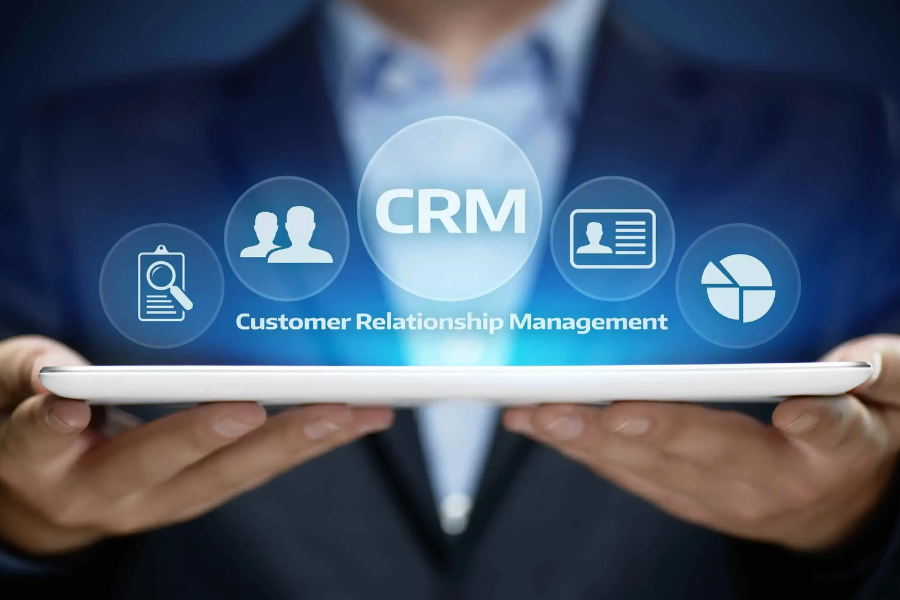Mastering CRM: Unlocking the Power of CRM Software for Better Business Outcomes
Introduction
Customer Relationship Management (CRM) software is essential for modern businesses, enabling them to effectively manage interactions with both existing and prospective clients.
These systems offer a wealth of features, including detailed customer profiles, interaction tracking, and sales management support. Such tools are crucial for nurturing and enhancing customer relationships.
In a highly competitive market, CRM software is a game-changer. It drives profitability, streamlines business operations, and offers deep insights into customer behavior.
By consolidating customer data in one place, CRM systems empower businesses to deliver tailored experiences, build stronger client connections, and boost customer satisfaction and loyalty.
What is CRM Software in 2024?
In 2024, Customer Relationship Management (CRM) software is a cutting-edge tool that streamlines how businesses manage their lead pipelines and customer journeys. It collects detailed personal data to provide a comprehensive view of both customers and leads, making this information accessible across sales, marketing, and customer service teams.
The integration of AI and automation is set to revolutionize CRM systems. These advancements will bring together intelligent data processing, predictive analytics, and automated workflows, significantly improving efficiency and effectiveness.
As a result, CRM solutions in 2024 will continue to evolve, harnessing the latest technologies to help businesses enhance their customer relationships and optimize their sales processes.
How Powerful is a CRM?
A CRM’s strength lies in its role as the central hub for all client information. It enables businesses to track every interaction with clients, from meetings and phone calls to emails.
This comprehensive tracking ensures that no detail is missed and keeps everyone in the company promptly informed about a client’s needs and history.
By leveraging a CRM, businesses can tailor their interactions to better meet customer needs. If you encounter any issues during setup, please retry or contact support for assistance.
Benefits of CRM Software
Enhanced Customer Relationships:
CRM software centralizes all customer data, making it easier to track interactions and understand client needs, which helps build stronger relationships.
Streamlined Communication:
By consolidating all communications in one place, CRM ensures that team members stay connected and collaborate effectively.
Boosted Sales:
CRM tools help create and manage a sales pipeline, automate routine tasks, and refine the sales process, leading to increased revenue and improved efficiency.
Better Customer Retention:
Providing superior service and personalized interactions through CRM can lead to higher customer satisfaction and loyalty.
Data-Driven Decision Making:
With accurate data and detailed reports from CRM systems, businesses can make informed decisions based on solid analytics.
Task Automation:
CRM software automates repetitive tasks, such as generating reports and sending follow-up emails, freeing up time for strategic activities.
Centralized Information:
All customer-related information is stored in one place, allowing easy access for all team members.
Improved Marketing Efforts:
CRM offers valuable insights into customer preferences and behaviors, enabling businesses to develop targeted marketing strategies.
Effective Customer Segmentation:
Segmenting customers based on various criteria allows businesses to engage more effectively and tailor marketing campaigns to different audiences.
Mobile Access:
Many CRM systems offer mobile apps, enabling team members to access and update customer data on the go, enhancing productivity and supporting remote work.
What Are the Must-Have Key Features of CRM Software?
Contact Management
A fundamental feature of CRM software is contact management, which allows businesses to efficiently track and organize client and prospect information. This includes managing names, addresses, phone numbers, email addresses, and social media profiles. By consolidating contact details, employees can easily access and update information, ensuring consistency and accuracy across the team.
Sales Automation
Sales automation optimizes the sales process, helping teams close deals faster. It automates routine tasks such as sending follow-up emails, scheduling meetings, and generating sales quotes. This reduces manual work and frees up salespeople to focus on building relationships and strategizing.
Customer Service and Support
CRM systems enhance customer service by streamlining support processes. They provide agents with a complete history of customer interactions, enabling them to address issues promptly and effectively. CRM can also automate support tasks, such as managing tickets and sending satisfaction surveys, to improve response times and overall customer satisfaction.
Marketing Automation
Marketing automation within CRM systems simplifies campaign management, from planning to execution and tracking. It automates tasks like sending newsletters, segmenting customer bases based on behavior, and measuring campaign success. This allows marketing teams to target their audience more precisely and deliver personalized communications.
Reporting and Analytics
CRM software offers robust reporting and analytics capabilities, providing businesses with valuable insights into their marketing, sales, and customer service activities. It generates reports on campaign effectiveness, customer behavior, and sales performance, helping companies make informed, data-driven decisions and refine their strategies for better results.
How Do You Choose the Right CRM for Your Business?
Assessing Business Needs
The first step in choosing the right CRM for your company is to identify your specific needs. Determine the challenges you want the CRM to address and the features that will benefit your business the most. Consider how your team will use the CRM and which functionalities are crucial for optimizing your business processes.
Key Criteria for Selection
When evaluating CRM options, focus on these essential criteria:
- Ease of Use: Ensure the CRM is user-friendly and easy for your team to adopt.
- Customizability: Check if the CRM can be tailored to fit your business’s unique processes.
- Integration: Choose a CRM that integrates seamlessly with your existing tools and applications.
- Scalability: Opt for a CRM that can grow with your business, handling increased users and data as needed.
- Support and Training: Evaluate the level of training and customer support provided by the CRM vendor.
Popular CRM Solutions
Here are some well-regarded CRM solutions on the market:
- Salesforce: Renowned for its extensive features and flexibility.
- HubSpot: Offers an intuitive interface and is ideal for small to mid-sized businesses.
- Zoho CRM: Provides a broad range of features at an affordable price.
- Microsoft Dynamics 365: Integrates smoothly with other Microsoft products.
- Pipedrive: Specializes in sales and pipeline management, making it a good choice for smaller teams.
Choosing the right CRM involves understanding your needs, assessing key criteria, and exploring popular options that align with your business objectives.
Case Studies and Success Stories About the Power of CRM Software
Example No. 1: Canadian Customer Debt Relief
Canadian Customer Debt Relief (CCDR) is a prominent debt counseling firm in Canada, ranked 4th in size with over 20 years of experience and government accreditation. Despite their extensive expertise, CCDR encountered issues with lead capture and document collection due to inadequate data analysis, poor email deliverability, and difficulties in tracking lead activities.
The implementation of CRM software addressed these challenges by enabling multi-channel lead capture, automating lead distribution, providing comprehensive lead tracking, and generating detailed productivity reports. As a result, CCDR saw a 60% increase in productivity and achieved a holistic view of their customers, significantly improving their sales process and operational efficiency.
Example No. 2: BYJU’S – Tracking Every Step with CRM
BYJU’S, a leading e-learning platform, needed a CRM solution to effectively manage its vast customer data. Initially using a combination of CRM software and Excel sheets, they struggled with lead management and data tracking.
The company turned to LeadSquared, which stood out for its ease of adoption, flexibility, and rapid implementation. With the new CRM system, BYJU’S streamlined various operations beyond sales, including order management and recruitment.
Mrinal Mohit, COO of BYJU’S, commended LeadSquared for its adaptability and effectiveness, highlighting its role in monitoring sales follow-ups and tracking both online and offline activities.
Future Trends in CRM Software
AI and Machine Learning Integration
Modern CRM systems are advancing in their ability to personalize the customer experience. Businesses can use these systems to craft tailored marketing campaigns, offer customized product recommendations, and provide personalized customer service interactions, all based on individual preferences and needs.
Enhanced Personalization Capabilities
Modern CRM systems are advancing in their ability to personalize the customer experience. Businesses can use these systems to craft tailored marketing campaigns, offer customized product recommendations, and provide personalized customer service interactions, all based on individual preferences and needs.
Mobile and Cloud-based Solutions
The shift towards mobile and cloud-based CRM systems means that sales and customer service teams can access customer data from anywhere using smartphones or tablets. Cloud-based CRMs offer the benefit of accessibility from any location, which is particularly advantageous for remote teams.
Predictive Analytics and Big Data
Predictive analytics uses historical data to forecast future trends, such as sales patterns, customer behavior, and marketing campaign effectiveness. Coupled with Big Data, which allows for rapid processing and analysis of large volumes of information, CRM systems can provide deeper insights and support more informed decision-making. Predictive analytics helps identify potential leads, reduce churn rates, and optimize marketing strategies for better results.
Conclusion
In 2024, CRM software is more than just a tool—it’s a strategic asset that empowers businesses to unlock the full potential of their customer interactions. By integrating advanced features like AI and automation, CRM systems enhance efficiency, drive profitability, and provide actionable insights into customer behavior. The benefits are manifold: from improved customer relationships and streamlined communication to increased sales and data-driven decision-making. As CRM technology continues to evolve, businesses that leverage these tools effectively will gain a significant competitive edge, fostering stronger client connections and optimizing their sales processes. Embracing CRM software not only streamlines operations but also lays the foundation for sustained growth and success in today’s dynamic market landscape.
FAQs
1. What is CRM software?
CRM software, or Customer Relationship Management software, helps businesses manage interactions with current and potential clients. It centralizes customer data, tracks interactions, and supports sales, marketing, and customer service efforts.
2. How does CRM software benefit businesses?
CRM software offers several benefits, including enhanced customer relationships, streamlined communication, increased sales, better customer retention, data-driven decision making, task automation, and improved marketing efforts.
3. What are some key features of CRM software?
Must-have features of CRM software include contact management, sales automation, customer service and support, marketing automation, and reporting and analytics.
4. How do I choose the right CRM for my business?
When selecting a CRM, assess your business needs, consider ease of use, customizability, integration with existing tools, scalability, and the level of support and training provided by the vendor.
5. What are some popular CRM solutions available?
Popular CRM solutions include Salesforce, HubSpot, Zoho CRM, Microsoft Dynamics 365, and Pipedrive. Each offers different features and benefits, so choose one that aligns with your business objectives.
6. How can CRM software improve customer relationships?
CRM software centralizes customer data, allowing businesses to track interactions and understand client needs better. This enables more personalized and timely interactions, ultimately building stronger customer relationships.
7. What future trends are shaping CRM software?
Future trends include AI and machine learning integration for personalized experiences, enhanced personalization capabilities, mobile and cloud-based solutions for accessibility, and predictive analytics combined with Big Data for deeper insights.
8. Can CRM software be beneficial for small businesses?
Yes, CRM software is beneficial for businesses of all sizes. For small businesses, it can help streamline operations, improve customer service, and provide valuable insights into customer behavior and sales performance.
Get the latest scoop and updates on englandtribune






